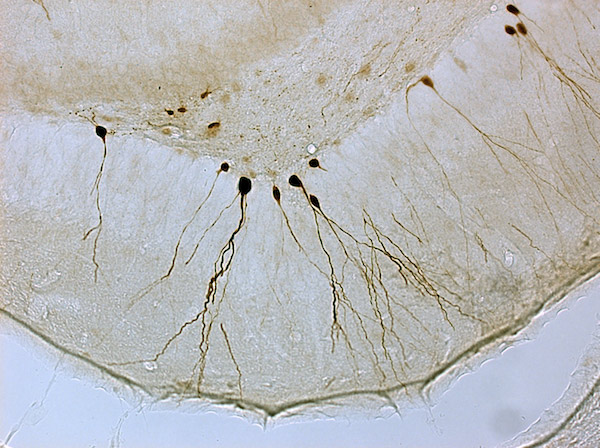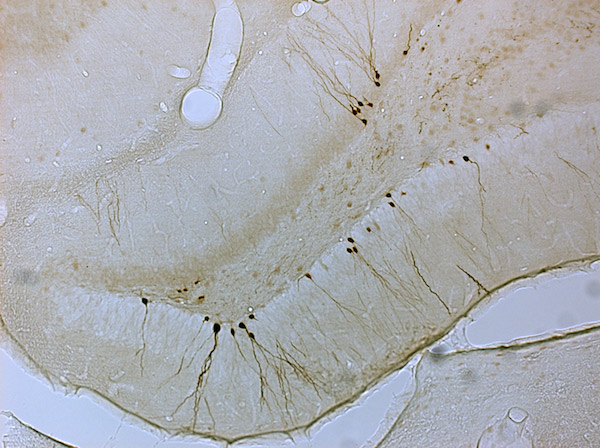
French Scientists Use Neurolucida to Study Plasticity in Adult Neurons
When an adult rat learns new things about its physical environment, the newborn neurons in its brain change – dendrites branch, spines increase, soma grows. But what about mature neurons? Might they also undergo structural changes in response to learning? “Yes,” say scientists at the National Institute of Health and Medical Research and the University of Bordeaux, in Bordeaux, France.
Led by Drs. Valérie Lemaire, Sophie Tronel, and Marie-Françoise Montaron the research team used Neurolucida to analyze the morphology of neurons in the dentate gyrus of the hippocampus, one of the most important regions of the brain for learning and memory. They found that neurons continue to develop into maturity and that these mature neurons play an important role in spatial learning.
Male rats tested in a water maze were the subjects of the study “Long-Lasting Plasticity of Hippocampal Adult-Born Neurons,” published last February in The Journal of Neuroscience. Compared to the control group, the neo-neurons of the experimental group had longer dendrites, increased nodes, increased endings, and a greater cell body area when measured at two-months and four-months after genesis.
To determine if mature cells, already shaped by experience and integrated into the network were still relevant in the spatial learning process, the researchers depleted some of these cells by using Ara-C. The drug, used to treat cancer patients, inhibits cell proliferation. They found that the decreased level of these mature cells resulted in learning delays at the beginning of the water maze training.
“Our results suggest a new perspective with regard to the role of neo-neurons by highlighting that even mature ones can provide an additional source of plasticity to the brain to process memory information,” the authors say in their study.
Read the free abstract here.
Images of adult-born neurons in the dentate gyrus of the hippocampus labeled with a GFP retrovirus (magnification X10 or X20) provided by the authors.
Lemaire V, Tronel S, Montaron MF, Fabre A, Dugast E, Abrous DN. Long-lasting plasticity of hippocampal adult-born neurons. J Neurosci. 2012 Feb 29;32(9):3101-8




